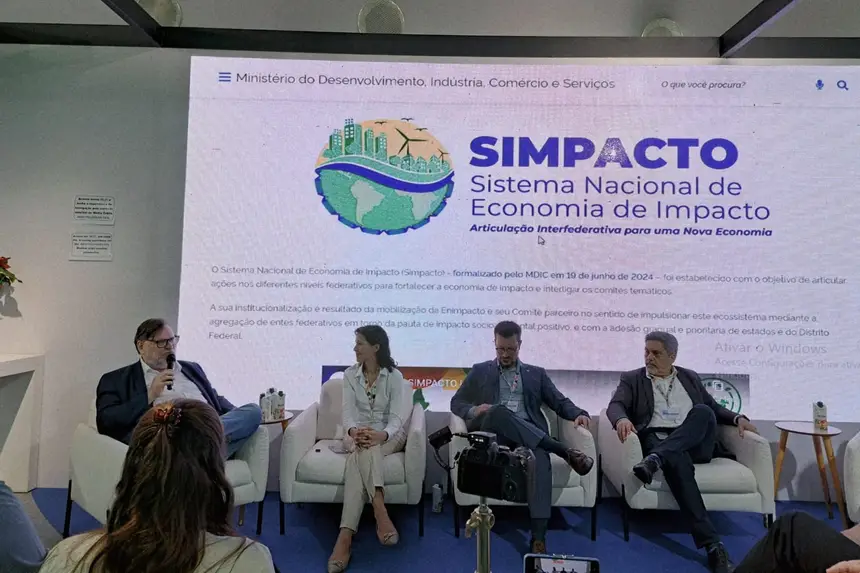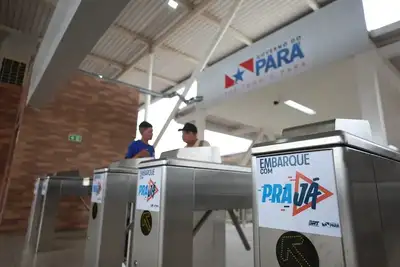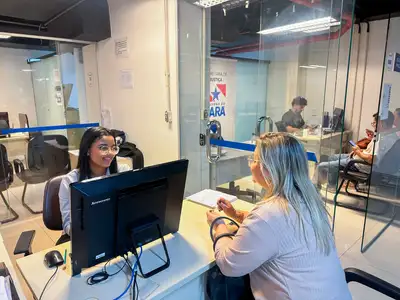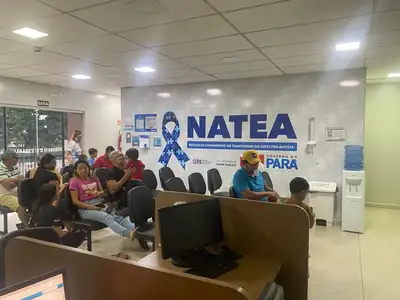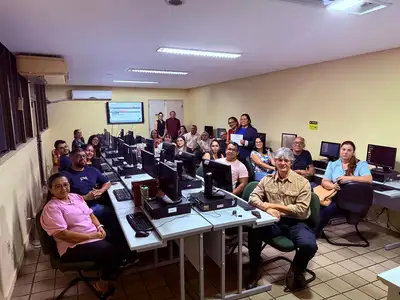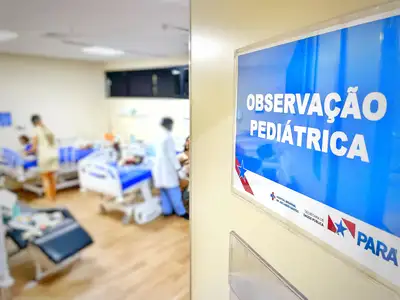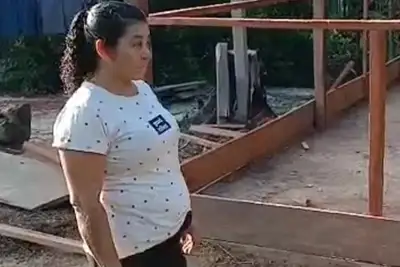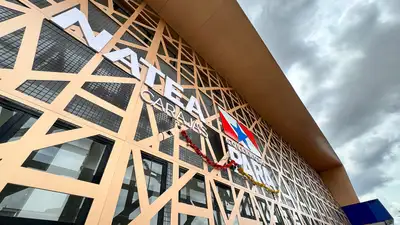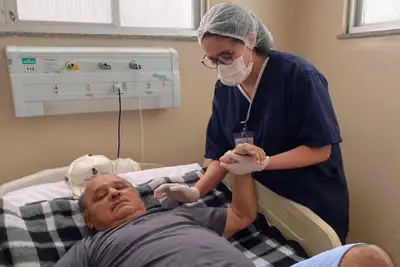Sedeme participates in panel on impact economy at COP30
The initiative, led by the Ministry of Development, Industry, Commerce and Services, aims to strengthen this economic model across all regions of Brazil
The State Secretariat for Economic Development, Mining and Energy (Sedeme), represented by Secretary Paulo Bengtson, participated in the panel "National Impact Economy System (Simpacto)", held on the morning of this Thursday (13), at the stand of the Brazilian Agency for Industrial Development (ABDI), in the Pará Pavilion, Green Zone of the 30th Conference of the Parties to the United Nations Framework Convention on Climate Change (COP30).
The Simpacto aims to promote a collaborative network that integrates the Union, states, municipalities, companies, and civil society, aligned with the guidelines of the National Impact Economy Strategy (Enimpacto). The initiative, led by the Ministry of Development, Industry, Commerce and Services (MDIC), seeks to strengthen the impact economy in all regions of Brazil, creating conditions for socio-environmental businesses to gain scale and visibility.
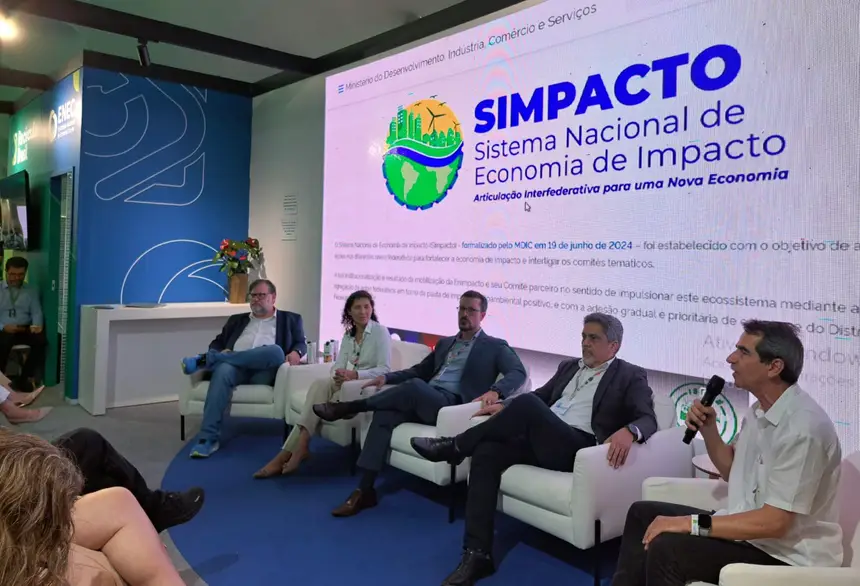
During the panel, the guidelines for states' adherence to the system were presented, as well as strategies for creating a business environment focused on solving social and environmental problems, prioritizing income generation, social well-being, innovation, and inclusive economic development.
Advances for adherence - Sedeme highlights that the State of Pará is in advanced negotiations to also join Simpacto. The adherence will be formalized through the signing of a Technical Cooperation Agreement between Sedeme, the State Secretariat for the Environment, Climate and Sustainability (Semas), and the Secretariat for Green Economy, Decarbonization and Bioindustry, linked to MDIC.
The agreement is based on State Decree No. 4,746, of June 23, 2025, which established the State Committee for the Development of the Socio-environmental Impact Economy (Cedisa), a fundamental requirement for adherence to the system.
The Cedisa, linked to Sedeme and Semas, has a deliberative and consultative nature, with the mission of proposing, monitoring, evaluating, and articulating the implementation of the State Policy for Impact Economy in Pará, reinforcing the State's commitment to sustainability and innovation.
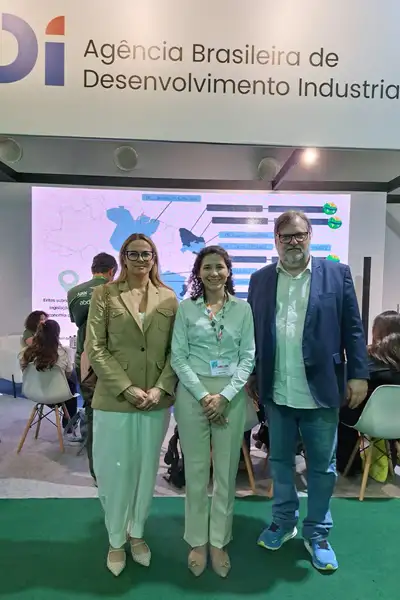
The panel was moderated by the Deputy Secretary of the Green Economy Secretariat of MDIC, Lucas Ramalho, and included the participation of the Secretary of Green Economy, Decarbonization and Bioindustry, Júlia Cruz; the technical director of Sebrae (Brazilian Service of Support for Micro and Small Enterprises) in Rio Grande do Norte (RN), João Hélio, and the executive secretary of Science, Technology and Innovation of Sedecti of Amazonas (State Secretariat for Economic Development, Science, Technology and Innovation), Jeibe Medeiros.
Commitment - "More than hosting the global debate at COP30, Pará is consolidating itself as a laboratory of solutions and a safe harbor for investments that build the future. With the State Committee for the Development of the Socio-environmental Impact Economy (Cedisa) validated, the State is ready to join Simpacto. Through it, we reaffirm our commitment to sustainable economic development and the protection of the Amazon. The future is green, and it starts now, in Pará," emphasized Secretary Paulo Bengtson.
He also highlighted the guidelines of the state government's tax incentive policy, aligned with socio-environmental principles. "When granting incentives, the State considers the social impact that the company will generate in the municipality: the improvement of the HDI (Human Development Index), the use of clean energy, and the commitment to decarbonization — a process we have led with direct actions and existing devices. Sedeme has participated in various events, including in the mining sector, showing that it is possible to carry out mining in the Amazon responsibly. For this, we have intensified the fight against illegal activities — those who have no commitment to social transformation or the environment," added Paulo Bengtson.
The Director of Industry, Commerce and Services Development at Sedeme, Sherry Brom Rodrigues, highlighted at the event that Pará is consolidating itself as a pioneer in the northern region in Impact Economy, with Cedisa already validated and structured to act strategically and transversally. According to her, "with adherence to Simpacto, we strengthen our capacity for action, as the synergy among all involved allows us to enhance actions, optimize resources, and accelerate impact economy initiatives aimed at sustainable development. This advancement expands our reach and reaffirms our commitment to the preservation of the Amazon."
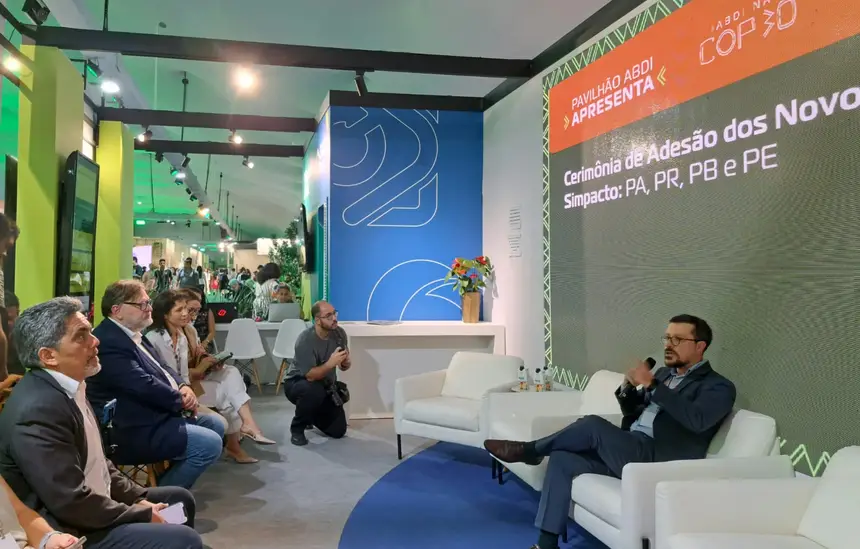
João Hélio, from Sebrae in Rio Grande do Norte, thanked the support of the Ministry and partners. "We are here, at ABDI, an important partner for the Sebrae system. We have several business and impact initiatives in collaboration with ABDI. It is essential to highlight that we are integrated and connected, working to make our dreams real throughout the national territory. We want this to become an example to be followed, an inclusive, bioportological, and transformative model for our society and businesses," he emphasized.
Engagement - Secretary of Green Economy Júlia Cruz highlighted the importance of federalism for sustainable development in Brazil. In her assessment, the combination of efforts is essential to face Brazil's social and environmental challenges and to achieve the Sustainable Development Goals (SDGs).
Júlia Cruz emphasized that the involvement of BNDES (National Bank for Economic and Social Development), Sebrae, private investors, and philanthropy is necessary to promote the impact economy. However, she highlighted that no progress can be made without federalism and the action of subnational entities, which are considered fundamental for working with communities.
The secretary stressed the importance of Simpacto's partnership with the states and expressed her satisfaction in being alongside the secretaries of Pará and Amazonas, recognizing the leadership of these regions in socio-environmental impact investments.
Visibility - Simpacto aims to promote the alignment of the legislation of Brazilian states and municipalities with the guidelines of the National Impact Economy Strategy. The initiative, led by MDIC, intends to create conditions for socio-environmental businesses to gain scale and visibility.
Simpacto was conceived to establish partnerships with state public policies, respecting the specificities of each territory, and to foster initiatives aimed at generating positive impact. By adhering to Simpacto, states begin to operate in five strategic axes: expanding the supply of capital for the impact economy, increasing the number of businesses with this profile, strengthening intermediary organizations, promoting a favorable institutional and regulatory environment for investments, and articulating inter-federative actions (between states and municipalities).
With this model, Simpacto consolidates itself as a tool for integration and strengthening of the impact economy, positioning Brazil as a reference in building sustainable and inclusive solutions.


